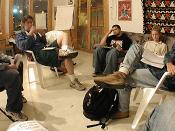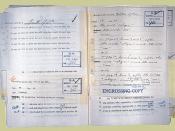Abstract One theme in the economic study of legislatures is that institutions arise to mitigate problems which commonly plague organizations. The objective of our study is to demonstrate that some institutional solutions persist, at least in part, because they yield side-benefits that promote other organizational ends that may even transcend the organizational worth or value of their explicitly-designed functions. With this purpose in mind, we examine the functioning of the Rules Committee in the U.S. House of Representatives since it is the quintessential legislative institution with an explicit role in fostering efficiency through the promulgation of rules for the deliberation of legislation. Most scholars agree that the House Rules Committee is one of the most powerful committees in Congress, and that this power is largely derived from the Committee's control over the legislative agenda. This characterization of the power of this important Committee may obscure some of its other functions, in particular, its ability to reduce intra-party shirking by promoting team spirit; the Committee does so by issuing partisan-charged rules that exacerbate inter-party conflicts and rivalries.
This is a latent function of the Committee. We first introduce a verbal theory describing how the Rules Committee operates to promote team spirit, or partisanship, within the House of Representatives; we then formulate a formal model demonstrating that the Rules Committee, under certain conditions, introduces greater partisanship into legislative decision making. Finally, we derive some comparative statics from the theory and examine the extent to which we can find empirical evidence that the Rules Committee does, in fact, ferment divisions between the political parties thereby increasing partisanship.
.
Agenda-Setting Committees, Latent Institutional Functions, and the Economic Organization of Legislatures Roger Larocca, Glenn R. Parker, Suzanne L. Parker Selvin Akkus, Brandon Barker, Mitchell Ousley, Abigaile VanHorn, and Linjing Wang Purdue University One theme in...


